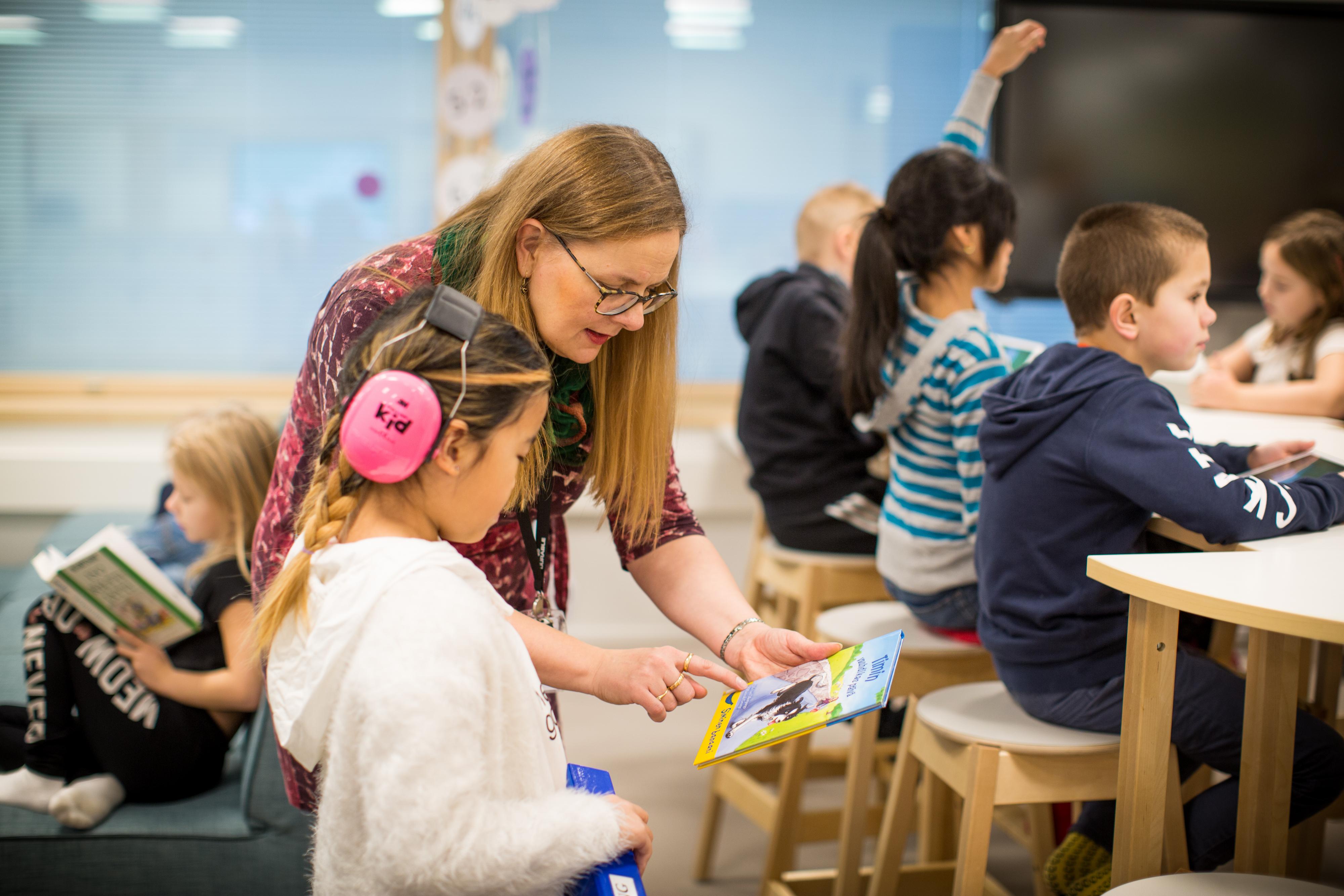Support for learning is renewed in August – Porvoo is also planning its implementation into daily school life
The support for learning in pre-primary, basic and general upper secondary education will be renewed throughout the country from 1 August 2025. The aim of the major reform is to support students at an early stage, in their own teaching group and primarily group-specifically.

The City of Porvoo has invested in the arrangements for support for learning already in recent years. The legislation that is being renewed affects the national core curriculum and thus also the local curricula and daily school life in Porvoo. In the future, the focus on organising support for learning and school attendance will be in group-specific type of support.
The reform is driven by a decline in learning outcomes and an increased need for support
Every child and student have the right to receive the kind of support for learning and school attendance that they need. Support for learning can be group-specific, such as general remedial teaching, teaching provided by a special educational needs teacher, or remedial teaching in the language of instruction. If necessary, the student can receive individual support, such as regular teaching provided by a special educational needs teacher in a small group, or teaching by a special educational needs teacher entirely in a class for students with special educational needs.
The current so-called three-tiered support model (general, intensified and special support) goes out of use. The change in the support model is long-awaited throughout the country, as learning outcomes have declined in recent years and the need for support has increased. There have also been some ambiguities in the current model.
– The goal with reforming the support for learning is to provide an even more flexible support system that better meets the diverse needs of children and students, says Helena Saarikoski, Regional Principal for Support for Learning.
Porvoo puts a lot of effort into group-specific support measures
The biggest change is putting a lot of effort into group-specific support measures that apply to all teaching groups and teachers.
– During the summer pre-primary school teachers will define what the new terminology “teaching arrangements that support the prerequisites for learning” means in practice for Porvoo pre-primary school education. Starting this autumn and in accordance with the new definitions preschool groups and special needs teachers in early childhood education will work together to implement the support and co-teaching, says Lena Karlsson, Director of Early Childhood Education.
In basic education, the reform of support for learning can be seen as more effort put into group-specific support measures. If group-specific support measures are not enough, the student has the right to receive individual support. The forms of support are planned by making use of different forms of co-teaching and flexible grouping.
– It is important for teachers to cooperate in the planning and implementation of teaching arrangements that support the prerequisites for learning. Teaching groups must be formed in a way that enables achieving the objectives of teaching, and the teacher to consider the needs of the teaching group, says Josefin Svedin, Regional Principal for Support for Learning and School Wellbeing.
The reform of support for learning also applies to upper secondary education. In upper secondary schools, support will be provided on two levels in the future: as support for learning and as special education. New issues introduced by the amendment of the law are special education given by a special education needs teacher, and an administrative decision that will be made about it. Earlier no decisions about support for learning have been made in upper secondary schools, but different kinds of support measures have been carried out as part of teaching.
The work to update the local curricula in Porvoo began at the start of the year. The aim is that the work will be completed for comments by the end of this spring, and the curricula will be discussed in teaching divisions before the beginning of the school year.



